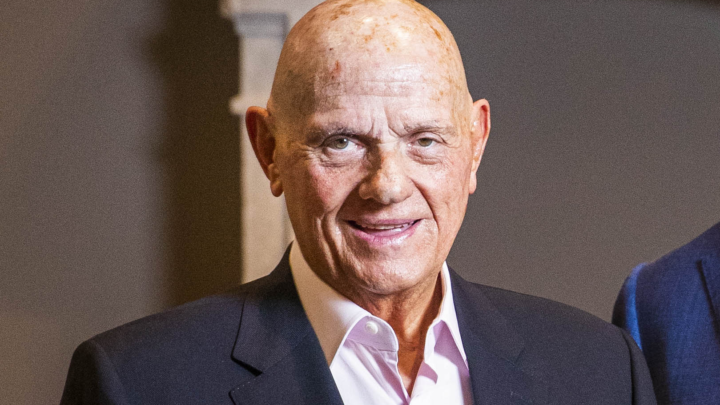Solomon Lew’s plan to spin off Premier Retail into individual business units, announced in August, appears to be moving full steam ahead, as kids’ stationery brand Smiggle and sleepwear brand Peter Alexander investigate potential international expansions. The group plans to review its retail operations and identify any new opportunities that a different corporate structure could bring to Smiggle and Peter Alexander, up to a potential demerger of the brands, and to analyse any potential
ial capital requirements, management structures, and separation costs.
Last week, Lew told the media that the review is well underway, and that there is a lot of excitement internally at the prospect of what could be achieved.
“We’re still at an early stage,” Lew said.
“December and January are a busy time for retail, so [the review] will be going on at a slower pace, but we’re expecting to have a final outcome before our half-year [sales results] in July 2024.”
Hard to justify in reality
While there is excitement internally, many retail analysts have taken a different tone.
Barrenjoey’s Aryan Norozi and Taylor Guyot noted in a letter to their clients in September that the sum of Premier’s demerged parts would likely be worth around $2.6 billion, according to The Australian Financial Review. And with Premier already worth around $2.4 billion, a demerger wouldn’t represent a particularly large boost in net worth.
“Demergers can sometimes make sense on paper, but are harder to justify in reality,” the pair wrote. If anything, the pair wrote that a demerger would mean less bargaining power for the business’ brands, and would make it harder to share tech between retail operations.
And, last week, investment analysts estimated that Peter Alexander’s overseas expansion could be worth between $633 million and $1 billion – with a large question mark over how viable such an expansion would be due to the fact that it is ‘unproven’ in other markets.
Despite this, Lew remains bullish on the prospect of Premier’s brands going global. The business already has plans to launch 60 standalone Smiggle stores in the United Arab Emirates – an expansion that is already underway regardless of the review’s outcome – and Lew sees further opportunities in offshore expansion.
“We’ve got businesses in Singapore, and Thailand. We’ve got a great business in New Zealand, and the UK, and we’re surveying our next opportunities,” Lew said last week.
“We believe we know where those opportunities are. The Middle East opportunity is even greater than we’ve spoken about, because [the] 60 stores that our agreement provides for can be expanded – so we’re not limited to 60 stores.”
Lew wouldn’t disclose who Premier Retail’s partner in UAE is.
Closer to home
While much of Premier’s plan for growth is centred overseas, there are still opportunities in its existing markets, Premier Retail’s interim chief executive John Bryce said, despite the growing cost of living in its home market of Australia.
Australian retail sales have fallen in recent months, and Premier hasn’t been exempt from that.
“As far as the impact of the cost of living on our consumers, it’s valid,” Bryce said.
“You’ve got to put a roof over your head, and food on the table, and supermarket prices have outgrown what anyone was hoping for, let alone putting petrol in the car.
“It’s tough on the consumer, and we’re now seeing that in the discretionary retail business. You have to do all of those things before you come and shop with us, and we’re seeing different impacts of that across our brands.”
According to Bryce, who took over last month when former CEO Richard Murray stepped down, it’s a challenge that the business hopes to meet.
“We’re happy with our performance collectively in FY23 [but] it’s challenging, and it’s competitive. But we’re just going to keep going and put what we think our customer wants in front of them, and execute on that seven days a week.”

